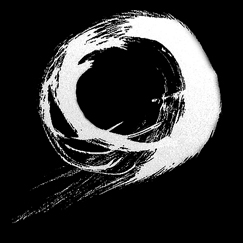
BuddhaWeg-Sangha
Mitglied der Association Bouddhiste Zen d'Europe
Mitglied der Deutschen Buddhistischen Union
|
At
Play in the Fields of the Pure Land
|
|
If you’re totally Bearing Witness, and also in the state of Not Knowing – that’s this word play. So play is both of those together. Then you’re acting in this free way in which you are totally immersed in the situation. You’re not attached to any kind of conditions. So you’re just playing. Where? In the fields of the pure land, where you are. Playing where you are. That’s sometimes drawn as the tenth oxherding picture that’s got Hotei – the fat guy with a bag of everything. Ryokan is another such character. He was a drunken poet in Japan and a monk, deeply in love with a nun named Teishin. They wrote many love poems to each other. Ryokan loved to play with the kids. There’s a famous story where he was hiding. They were playing hide and go seek and he hid in a barrel and after two days: “Wow they still haven’t found me!” That’s the kind of person he was. The word fields is also very important to me. At play in the fields of the pure land. I have a science background, so although I see everything as one interdependent thing, I look at it as a field. And things don’t coalesce until you have some instrument that perceives it. “The dharma is always encountered but rarely perceived.” And we say “Reality is boundless, I vow to perceive it.” How do you perceive anything? As a human we use our senses to perceive. We can perceive things via the brain – thinking or via touching or hearing or seeing or smelling or tasting. It’s through these various senses. And it’s generally a combination thereof. Not usually all of them. I don’t know whether you can perceive without the brain getting involved. Take a brain that you’ve totally lobotomized, or somebody’s brain dead. Can you perceive then? We certainly know we can make perceptions without one of the others. You could be blind, you could be deaf. My daughter Alisa studied special education at B.U. and she was specializing in deaf folks, but you know you’ve got to study it all. But she got a job working with kids that were epileptic, they were deaf, they were blind. They were having seizures all the time. But they had touch, so she learned Helen Keller touch. She could communicate that way. And she would take them dancing, and sit with them right in front of the speakers so they could feel the vibrations of the speakers. And she would take them to the edge of the property where they could feel the waves from the cars going by. There are many ways to perceive, but my opinion is that it’s all fields. And that when you place some kind of object like a brain in there with these other different instruments, you perceive, and that’s when all this starts happening – we start giving names to those perceptions, and we start labeling them and then we get categories and then we can study them and then we can get attached to those labels and categories. When you just start off – when you’re just feeling it all, it’s not as interesting. We don’t have all these fields of study. You can’t build schools. So you can see how all this can really develop. But initially it’s just these fields. And then when we talk about prior to the fields, we get to the instant before the big bang. Cause once the big bang starts, then we have these fields. Then we’re going to start having perceptions. But before the big bang we don’t even have the fields. My god! What’s going on here? Once we have all these perceptions and all these categories, then all these kind of questions like “What time is it?” come up. And all these kinds of decisions, like that’s the pure land and that’s not the pure land. That’s Buddha but I’m not Buddha – how could I be Buddha? So we could come up with all those weird things, see? Before, you can’t come up with all these weird things. |